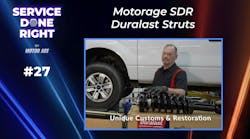The proposed settlement of a class action lawsuit involving the sudden acceleration issue with Toyota vehicles will not have a direct impact on a personal injury case involving a 2009 crash in Peterborough in which four people died.
The families of the victims of that crash filed suit in U.S. District Court in Concord in October, claiming that the sudden and unintended acceleration of a Toyota Highlander caused the crash that the Peterborough police chief called the worst he had ever seen.
A federal judge Friday approved a $1.1 billion settlement of a class action filed on behalf of Toyota owners who claimed the value of their vehicles was diminished by reports surrounding the sudden acceleration issue.
That settlement does not include personal injury cases, according to one member of the legal team pursuing the case on behalf of the families of the four victims.
"It doesn't have a thing to do with anybody's injuries," said William Dippel, a Texas lawyer who heads one of three firms representing families in the New Hampshire case. "The (class action) case alleged that a Toyota is worth less because it carries a stigma."
In the Columbus Day 2009 accident, a 2002 Toyota Highlander driven by Stephen Lagakos, 63, of Massachusetts, crashed into a Chevrolet Malibu driven by Stephen Krause of Keene.
Both drivers were killed, as were Lagakos' mother and wife.
The Krause and Lagakos familes are suing for wrongful death. The suit claims Toyota knew or should have known of the sudden acceleration problem and could have fixed it.
The families are seeking unspecified actual and punative damages.
Dippel has practiced extensively in catastrophic injury law. He is joined in representing the families in the New Hampshire case by another out-of-state attorney, Todd Walburg of San Francisco, along with Jack Middleton and Scott Harris of McLane, Graf, Raulerson and Middleton of Manchester.
Attorneys for the Krause and Lagakos families filed the suit three days shy of the third anniversary of the crash.
It is among scores of cases have been filed across the country seeking compensation for injuries in crashes in which, the suits claim, a Toyota accelerated for no apparent reason resulting in a crash.
Dippel said while the case was filed in Concord, it has been transferred to a special judicial panel in California that will supervise evidence discovery in the scores of cases involving Toyota.
The goal is to have the lawyers for everyone suing Toyota work together to obtain documents and conduct sworn deposition of Toyota employees that can be used in the individual cases. The federal Judicial Panel on Multidistrict Litigation (MDL) oversees the process.
"Discovery is done jointly," Dippel said. "The cases are typically sent back to their natural jurisdiction in each state."
Even when tried in federal court, a personal injury case is decided according to the legal precedents of the state court system, Dippel said.
"Federal courts apply federal procedural rules but substantive state rules," Dippel said.
The transfer to the multidistrict panel is intended to reduce the time and cost of the litigation.
"Discovery has been ongoing for a year and a half, if not longer," Dippel said. "Hundreds of depositions have been taken and millions of documents produced.
The panel sits in California, where Toyota's U.S. businesses are based.
Dippel said "bellwether" cases will be selected for trial before the MDL panel next year. Typically in such litigation, each side picks a "bellwether" case to be tried and another is chosen based on facts that appear equally favorable to each side.
The outcome of the bellweather litigation gives the remaining parties feedback that can help determine whether the case will settle or go to trial.
"Everyone gets to test their theories in the real confines of a jury case," Dippel said.
Voice Your Opinion!
Voice Your Opinion!

